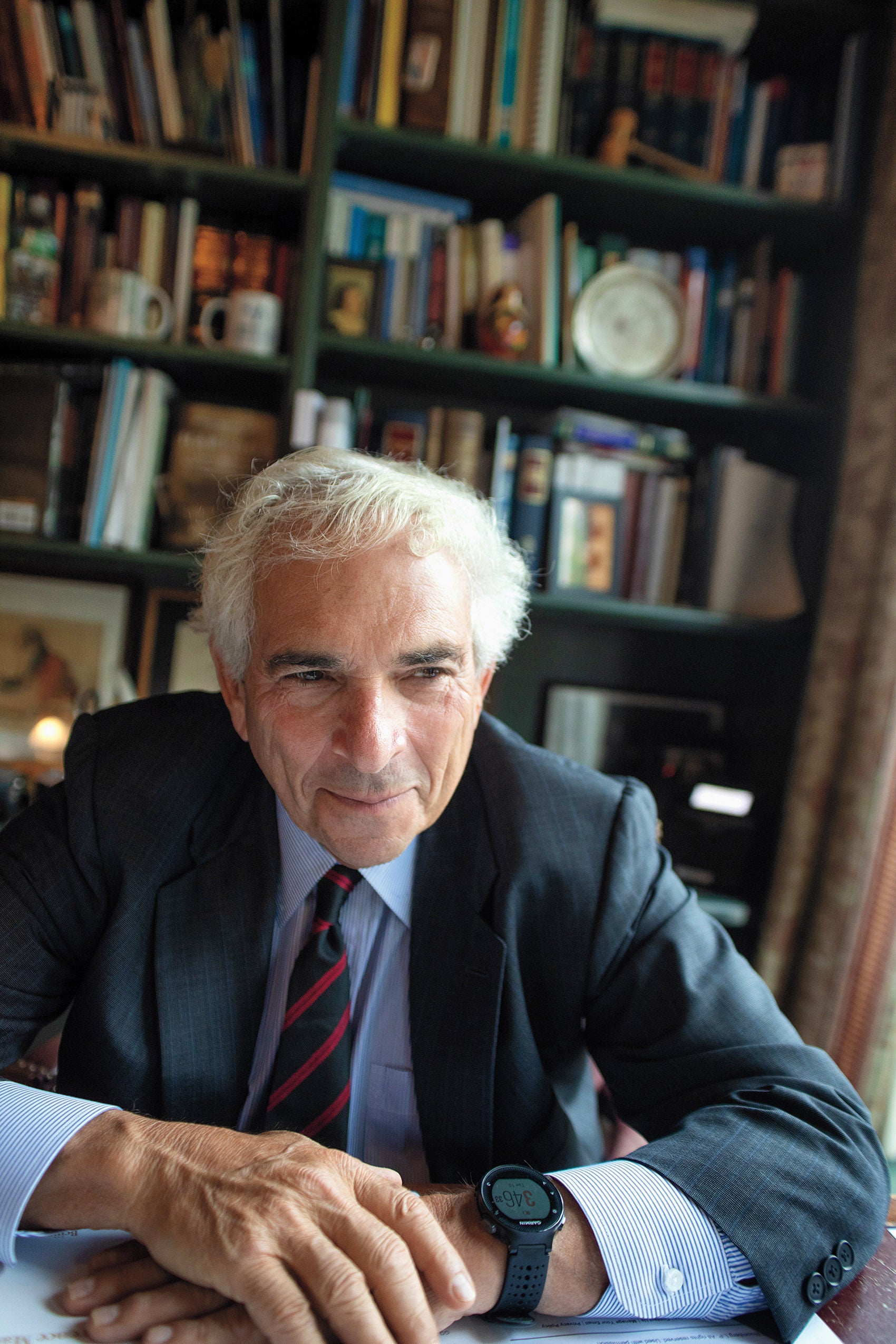Harvard Law Professor Hal S. Scott was in his element, thundering up and down the aisles of a classroom in Wasserstein Hall and challenging each of his 70 Capital Markets Regulation students to match his enthusiasm and curiosity.
After 43 years on the HLS faculty, Scott taught his final class at the school before retiring last spring. What is the best process, he asked, for ensuring that regulations for the financial system achieve their intended effect?
As one of the country’s pre-eminent scholars on financial regulation and head of the Committee on Capital Markets Regulation, Scott continues to focus on that question and many others. He founded the committee, a bipartisan group of 36 financial leaders that advises the highest levels of the U.S. government on financial markets policy, in 2006 at the invitation of then-U.S. Secretary of the Treasury Henry M. Paulson.
Scott’s classes were marked not only by his enthusiasm but also by their deviation from the casebook method of studying judicial opinions. (The same is true of his book on international finance—the first legal textbook on the topic, now in its 22nd edition.)
His classes focused on the policy problems that form the basis of the legal and regulatory framework that governs the U.S. financial system. His students had to ask and answer, for example, What should regulators and Congress do to protect our financial system from a crisis without unduly restricting economic growth?
After he received an M.A. in political science from Stanford University and a J.D. from the University of Chicago Law School, Scott’s legal career took flight in 1973-1974, when he clerked for United States Supreme Court Justice Byron White—the only member of the high court, Scott notes, to have also starred in the National Football League. The young Scott, unlike the other Court clerks, wanted to work on non-constitutional law cases, like antitrust and tax.
Scott thinks of White as a mentor and says one of the things he learned from the justice was the importance of brevity of expression.
Scott joined the Harvard Law faculty in 1975, the same year as his closest friend since high school, Douglas H. Ginsburg, who went on to be a judge on the U.S. Court of Appeals for the D.C. Circuit. In 1980, they co-taught the country’s first law school course on the regulation of financial institutions. That experience sparked a lifetime interest in the field for Scott.
“Hal Scott showed me how careful legal and logical analysis could unravel the mysteries of money.”
Peter Fisher ’85, former undersecretary, U.S. Treasury
Ginsburg has the highest praise for Scott: “Raising questions and getting to the bottom of them is always a game with Hal, and he has been a great teacher and scholar because he has never stopped asking naïve questions. If Hal had a motto, it would be not ‘Veritas’ but ‘Quid ita,’ Why is it so?”
Scott has taught many students who have gone on to careers in public service. Peter Fisher ’85, former undersecretary of the U.S. Treasury, says, “With boundless energy and enthusiasm, Hal Scott showed me how careful legal and logical analysis could unravel the mysteries of money and finance, guiding both my thinking and my career.” And Jack Reed ’82, senior U.S. senator from Rhode Island, says, “Professor Scott’s physical energy and class preparation were second to none.”
Scott is also a mentor to the dozens of HLS students who were research associates at the Committee on Capital Markets Regulation. Adam Jenkins ’11 recalls, “I was privileged to learn from one of the international financial system’s great thinkers, at an historic moment from 2008 to 2011 when that system was in jeopardy.” Many of the committee’s recommendations after the crisis were ultimately adopted into the 2010 Dodd-Frank Act.
Scott’s scholarship at HLS was always international, and in 1986, he founded the Program on International Financial Systems at Harvard Law School. The program, known as PIFS, organizes annual gatherings of senior policymakers, financial executives, and academics from China, Europe, and Japan.
In July, at the time of his retirement, Scott spun PIFS out from Harvard Law School into an independent organization, and he recently expanded its focus to include executive education for financial regulators across the globe.
While Scott will clearly be busy in his retirement from HLS, he says that he “will miss the students and preparing for class the most. HLS students were the best in the country in 1975, and they remain so today. A career of grappling with how to solve complex problems with these students is a career well-spent.”
“Financial innovation will not stop, and neither will the policy issues that it creates,” he adds. “It will always be interesting.” Sounds an awful lot like Professor Hal S. Scott himself.
—John Gulliver ’10 is executive director of the Program on International Financial Systems and executive director of research at the Committee on Capital Markets Regulation
